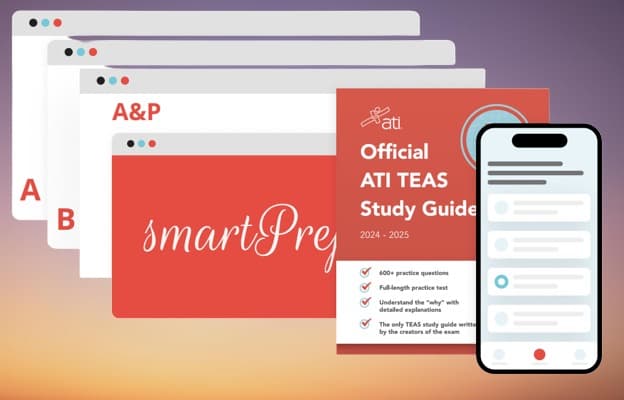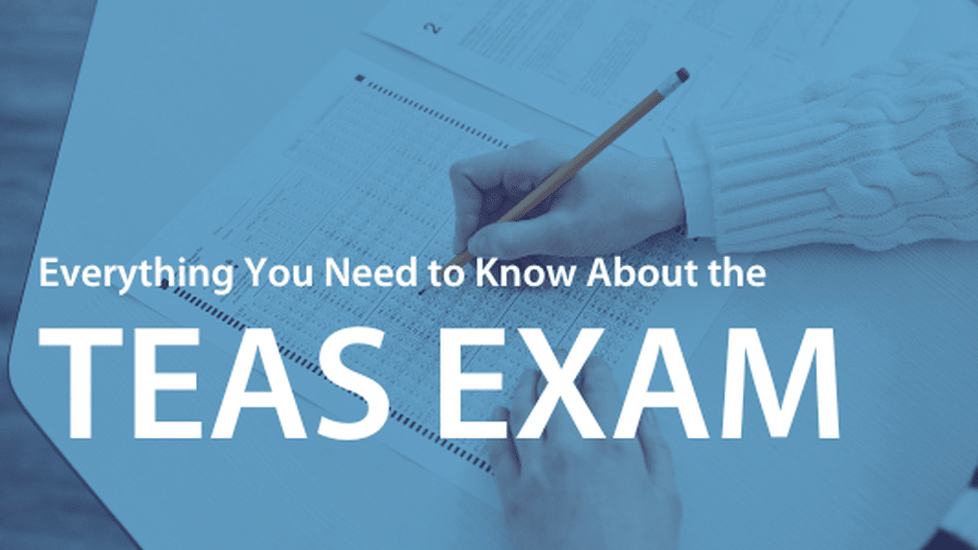Introduction
TEAS practice questions are an integral part of TEAS test preparation. These practice questions assess your knowledge and readiness to sit for the TEAS exam and help develop test-taking skills.
With the help of practice questions, you will also create impeccable strategies to manage your time effectively. Practice questions will help boost your confidence and enhance your readiness to sit for the test.
How To Use Practice Questions Effectively
There are efficient TEAS exam practice tips that you ought to follow to make the most out of these questions. These strategies will maximize your potential in the practice questions.
1. Use Comprehensive Practice Tests
Taking full-length practice tests is one of the major ways to make full use of the practice tests. That is because a majority of these tests will simulate the actual testing experience. This means you will get a sense of the actual TEAS timing, question types, and structure.
The realistic environment of the exam helps reduce anxiety, you become better at time management and also prepares you psychologically for the exam day. Further, the TEAS test question analysis helps you identify your strengths and weaknesses where you can pinpoint areas that require more focus.
2. Have Focused Review Sessions
Completing the practice test should not be the end of your revision. Ensure you thoroughly analyze your performance. Review all answers you picked, whether incorrect or correct, to help you understand the material better.
The analysis will help cement the reasoning between the answers you picked right and point out patterns in the mistakes you made in the incorrect answers. By carefully assessing your answers, you will know the errors to avoid during the exam and enhance your test-taking strategies.

Make use of the answer explanations and question why you did not think in that line of thought. Learning from your mistakes will help enhance your overall performance during the exam day.
3. Manage Your Time Well
Understand that the exam has stringent time limits for every section, and knowing how to manage your time effectively will set you up to complete as many questions as possible. Taking these practice tests under timed conditions helps you pace yourself and also know how much time you spend on each question.
Time management on the TEAS practice tests helps you become more comfortable with the time constraints during the exam, hence reducing exam anxiety. This will allow you to work on the questions diligently without the fear of running out of time. Hone your time management skills via regular timed practice sessions to be fully prepared when the exam day comes.
4. Engage in Incremental Learning
This strategy avoids information overload and promotes information retention. Target a given topic or section at a time to fully focus and grasp every concept in that section, whether it is calculus or differentiation in maths.
Using this strategy will allow you to identify the challenging areas that require improvement easily. Incremental learning helps students build a robust foundation of knowledge that is easy to recall and integrate during the exam. It also assists them in maintaining a sustainable and steady learning pace, leading to successful TEAS test preparation.
5. Identify Question Patterns
Strive to identify recurring question patterns and types to predict the format of the actual exam. Analyze the TEAS practice questions and look for common styles and themes like the frequently tested concepts and the basic structure of questions.
Knowing this will enable you to anticipate what type of questions you might encounter on the exam day and their level of difficulty. You can also categorize the questions based on their format to familiarize yourself with the different question styles. They could be fill-in-the-blank, multiple-choice, or matching questions. With this system in place, you will create strategies to handle every type of question effectively during the test.
6. Build Test-taking Confidence
Confidence helps you remain calm and collected, which helps you remember all the concepts you learned. Practicing with practice questions consistently helps build your confidence and familiarity with the TEAS exam. More exposure to the types of questions you might encounter in the actual test makes you feel comfortable that you are prepared enough.
The familiarity will help bring down levels of uncertainty and anxiety thus allowing you to enter the exam room with assurance. With high confidence levels, you will easily focus and perform better even when under pressure.
The improved focus is important on the test day as it helps you remember the concepts and manage your time effectively. Engaging the practice questions continuously offers students a sense of preparedness, which boosts their confidence, leading to overall success in the TEAS test.
7. Use Adaptive Practice Tools
Most of these tools will use algorithms to adjust the question’s difficulty levels based on your performance. These adaptive tools will challenge you to level up as they help identify your strengths and weaknesses.
The adaptive tools can be found on adaptive learning platforms and may include adaptive flashcards and diagnostic exams. The adaptive tools have targeted learning, where they identify the areas you find challenging and provide more dynamic questions about that specific area.
By the time you are done, you have mastered the majority of the concepts in the said area. Another advantage is that they save time. A more laser-focused approach to TEAS test preparation, such as focusing on weak areas, maximizes the effectiveness of your preparation for the exam.
How To Implement Adaptive Tools
- Engage regularly – ensure you use these practice adaptive tools more often to assess your knowledge level and adjust accordingly continuously.
- Review feedback—Always check the feedback given by the tool, as it contains suggestions and explanations for the answers. Use it to polish up your skills.
- Track progress—Monitor your progress over time to see whether you are improving and identify areas where you need to focus more resources.
Conclusion
Mastering the TEAS practice questions should not be complicated. These questions are resourceful and essential to passing the exam. To apply them correctly in your revision schedule, use techniques such as taking advantage of the full-length tests, focusing on review sessions, and even using adaptive practice tools. Remember, consistency is crucial in exam preparation. Be consistent in polishing your test-taking strategies and working on your weak areas to see positive results.



